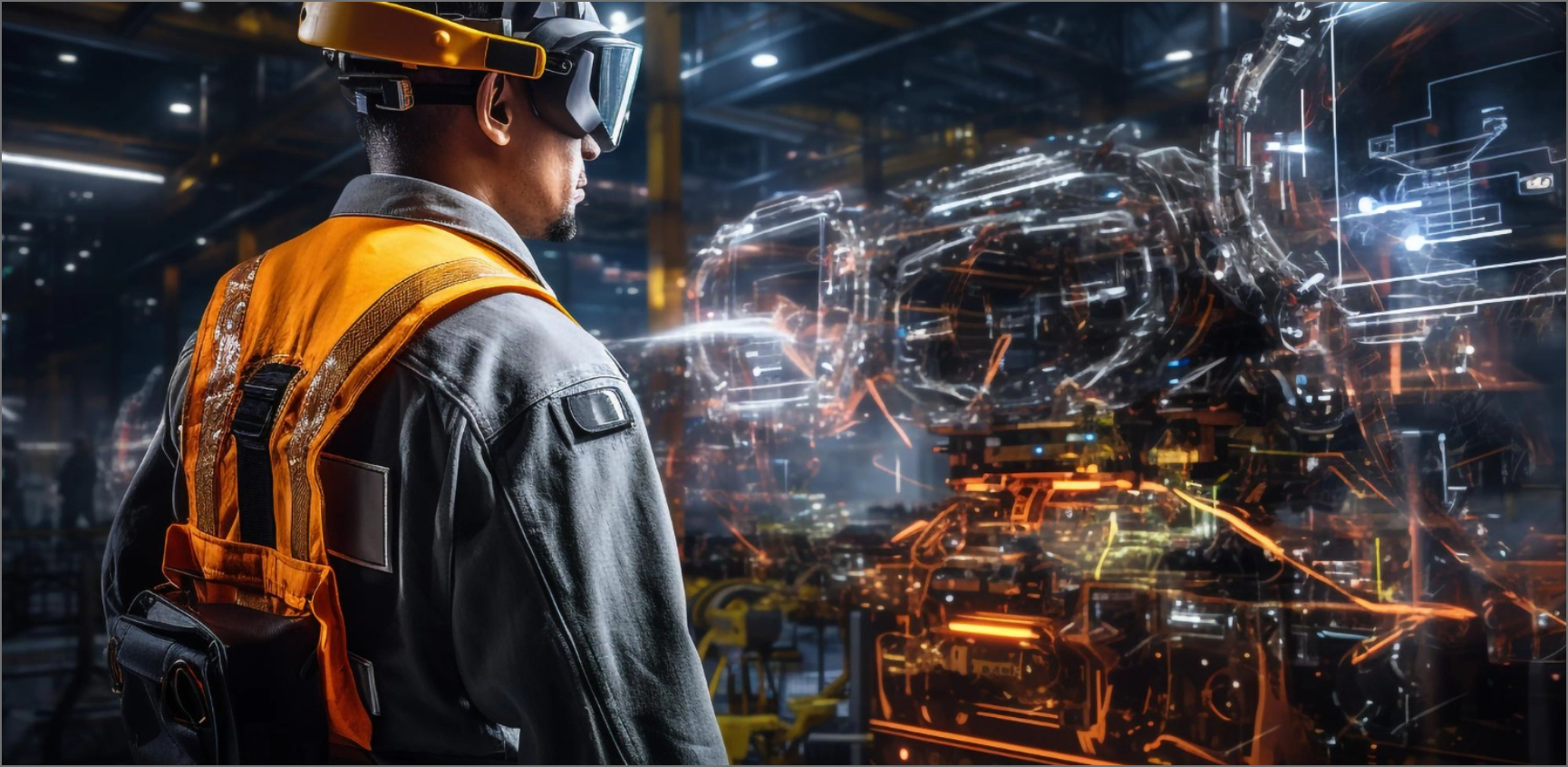‘Manufacturing’ success with generative AI
Reading Time: 4 minutes

From the first assembly lines to the robotics revolution, the manufacturing industry continually strives to find new ways to boost productivity while lowering costs. The assembly line ignited industrial evolution, and robotics pushed us further. A new wave of innovation is taking hold now, driven by the transformative power of generative AI. While challenges like supply chain disruptions and talent gaps have undoubtedly impacted the industry, they also serve as catalysts for growth and the pursuit of better tools or technologies. Generative AI emerges as a powerful tool that can propel industrial manufacturing toward a future of unprecedented efficiency, resilience, and opportunity.
Generative AI use-cases in manufacturing
Generative AI offers immense potential to drive productivity, quality, and improve user experience, across key areas of the manufacturing industry such as after-sales service, operation, research and product development, and more.
The industry overall is expected to realize a greater impact from generative AI with its wide-ranging applicability across the manufacturing value chain. Even in its early stages, generative AI use cases have started showing the potential to drive significant transformation across industry.
- Product R&D: Generative AI will enable manufacturers to iterate very quickly through a broad variety of design ideas, choosing which model best fits their needs. Researchers can use generative AI to enhance market reporting, ideation, and product or solution drafting. It will be used to generate prompt-based drafts and virtual designs, allowing them to iterate quickly with more design options. It can also leverage archives of products in the market to generate novel designs or optimize changes based on prompts.
- Automated customer service interactions: To deliver on consumer expectations, manufacturers are increasingly turning to generative AI to enable personalized value-added customer service experiences. It accelerates time-to-resolution for common interactions like product troubleshooting, ordering replacement parts, scheduling service, product information, and more.
- Procurement decisions: Generative AI offers a unique opportunity to benchmark product, quality, and cost information, and drive recommendations for minimizing the overall cost of purchase. Sourcing and procurement functions can benefit from using generative AI across areas from spend capitalization to guided buying/purchasing processes, thus enabling companies to make well-informed decisions with high-value realization.
Researchers at Toyota Research Institute have developed a process that uses generative AI to implement constraints to the design process, producing specific, innovative design solutions.
Air AI can seamlessly emulate human conversations in full-length customer service calls lasting for 10-40 minutes. With its infinite memory and autonomous multitasking across 5,000+ applications, it matches the power of 100,000 sales and customer service reps working tirelessly round the clock all through the year.
"Glo", a generative AI-powered conversational chatbot introduced by Globality Inc. can provide valuable insights into supplier and product data, enabling their clients make well-informed decisions regarding product procurement and supplier identification.
Critical considerations before implementing generative AI
Effective engagement with generative AI requires developing a basic understanding of the technology, its capabilities and limitations.
| Risks for implementation | Strategies to enable successful adoption |
|---|---|
| Siloed data storage and lack of technological interoperability | Identify the right storage solutions, and technology infrastructure for designing a modern data architecture. Build a strong data foundation with a governance mechanism. |
| Lack of trust on generative AI | Ensure contextual knowledge and domain expertise are utilized before applying generative AI. Conduct thought leadership sessions and technology demonstrations to help them experience real value |
| Data sensitivity | Develop a generative AI usage and ethics policy |
| Shortage of talent or skills gap | Offer career training to all employees; this will help them use generative AI appropriately in their work, while also building their skills. |
| Resistance and lack of readiness to change | Ensure proper communication of the changes and alignment across multiple parties (suppliers, customers, and the workforce) for successful collaboration |
Source: KPMG
The future of manufacturing with Generative AI
Generative AI has a promising future in the manufacturing sector. It offers significant potential for driving innovation, improving operational efficiency, enhancing B2B engagement, and optimizing various aspects of the manufacturing value chain. With its multifaceted abilities, generative AI can help manufacturers stay competitive in a rapidly evolving market. As the adoption and understanding of generative AI continue to grow, manufacturing leaders can expect to see more transformative applications and advancements.
To realize the transformative benefits of generative AI, learn more about our services.
Featured blogs
Subscribe to get latest insights
Talk to our experts
Get the best ROI with Sigmoid’s services in data engineering and AI
Featured blogs
Talk to our experts
Get the best ROI with Sigmoid’s services in data engineering and AI






